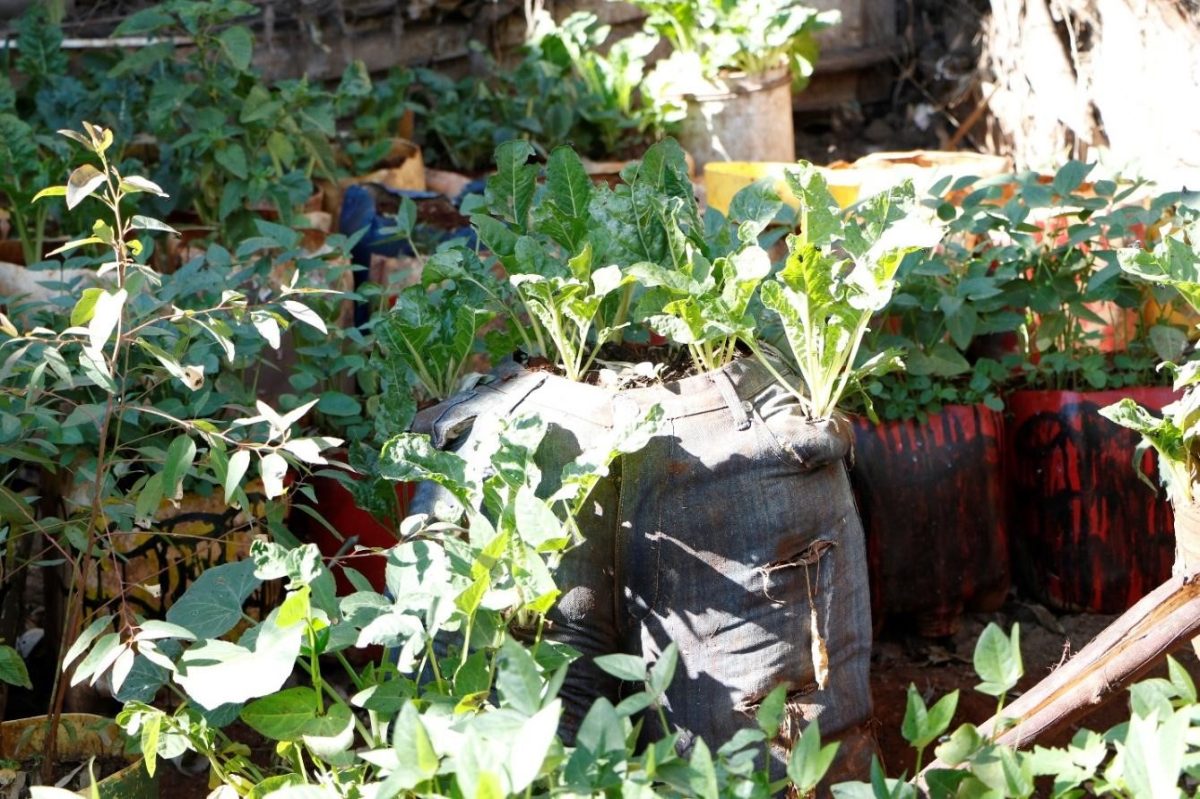By Allan Musumba
Characterized by their overly dense population, poor living conditions, limited access to social amenities and utilities, residents of Nairobi’s urban informal settlements face numerous and significant health risks. Furthermore, those residing in these areas continue to be subject to food insecurity based on the limited access to sufficient, safe, and nutritious foods that would sustain a healthy life. Additionally, limited space and access to clean water have hampered their ability to produce healthy organic produce.
Local initiatives
In Korogocho and Viwandani, several community-organized groups are trying to provide their communities with alternative sources of healthier food by utilizing available spaces and repurposing available materials for urban farming. Through various initiatives, they hope to steer their residence from being heavily reliant on the readily available street foods often operated by unsanitary food vendors with limited knowledge of proper food storage mechanisms and preservation techniques.
Viwandani Comprehensive Community Organization (VICCO) is among the 21 community-organized groups identified by APHRC through the Healthy Foods Africa project that will be working with several other partners to promote access to safe and nutritious foods for young children, women, and adolescents.

Currently, the organization is repurposing available materials such as plastics, worn-out tires, and old clothes to grow fresh green produce within the available space in the area. Moreover, the group supports school-going children by nurturing their knowledge of various nutritional sources and hopefully informing them on various innovative farming techniques.
APHRC has identified two local organizations; Resources Oriented Development Initiatives and City Shamba (previously known as Mwengenye Lifestyle CBO). The two organizations are instrumental in training community-organized groups on urban farming and providing technical support as the groups begin implementation.
In Korogocho, City Shamba rehabilitate polluted land by removing waste on available public spaces and growing food produce. Though the surrounding areas remain significantly polluted, current efforts show the local community organization can do that to better their food insecurity.

(A formerly polluted space that is being reclaimed for agricultural gain in Korogocho)
Collaborative partnerships
Though there is a considerable effort from these organizations to better the food security for the urban poor, they still face many challenges on their own in scaling up their business to serve the wider community better. The Nairobi Food Systems Lab will provide multi-sectoral partnerships with institutions such as Nairobi University, County governments, and health centers to enhance and support adaptable farming methods, food preservation and safety interventions.
Consequently, surrounding communities and institutions might see and adapt from the gains made from the various urban farming interventions, ensuring that the urban poor attains food security.